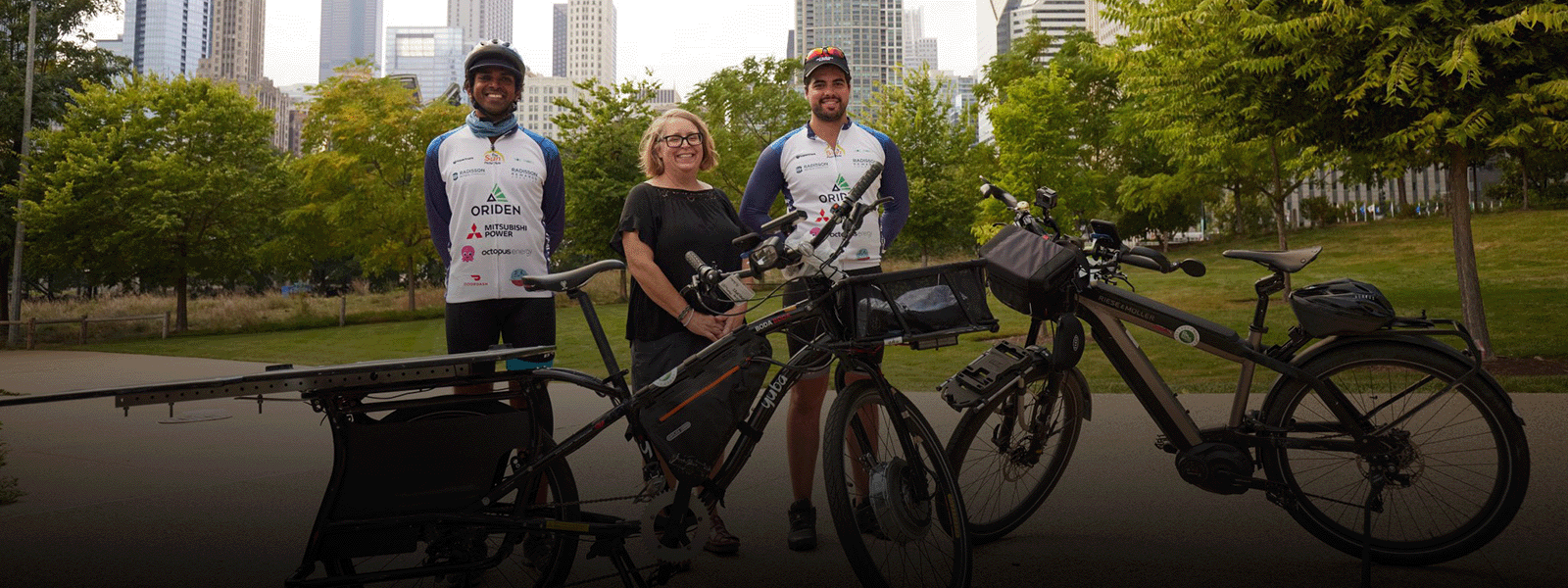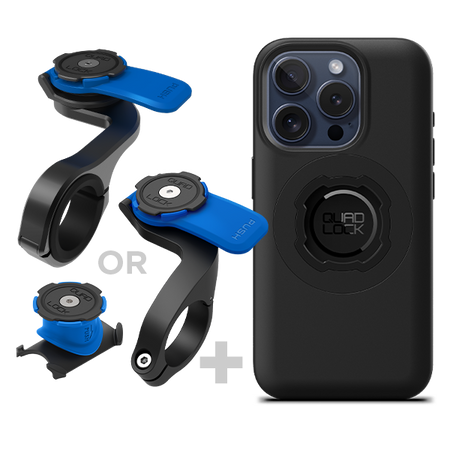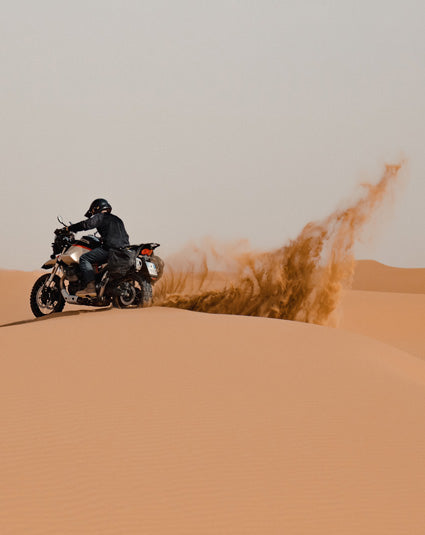Breaking a Guinness World Record on an E-bike – Sushil Reddy
Sushil Reddy set out on a journey to break yet another Guinness World Record, but this time across the USA on an e-bike. Together with his counterpart, Luis, Sushil and Luis set to ride 7000+ miles on e-bikes to raise awareness about converting to solar power, electric mobility, and environmental consciousness.
We asked Sushil a few questions about his journey and what inspired him to take on this challenge. Continue reading to delve into his inspiring responses.
What inspired you to embark on this journey to raise awareness about solar energy and electric mobility?
The idea of using clean energy to charge electric vehicles is one of the most sustainable ways to decarbonise the mobility sector. I am personally interested in spreading the word about technologies which in turn help to advance sustainability by reducing emissions. My educational background and interest have been in the energy and mobility sectors. I started the initiative - The SunPedal Ride - as a passion project in 2016 with the idea of spreading the word about these technologies by doing endurance journeys on zero-tailpipe emission vehicles. This USA journey was a part of this series of journeys under the initiative - The SunPedal Ride. My co-rider from Mexico, Luis Fourzan, and myself together undertook this 7000-mile journey in the USA. You can find a detailed blog of the journey here.
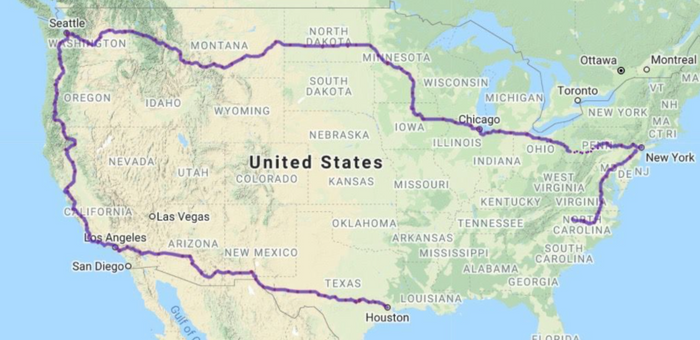
What solar-powered bike were you riding during your quest to break a Guinness World Record and how did it perform during your 6,000-mile ride across the U.S.?
The bike was a custom retrofitted build. Two 50 Watts SunPower solar panels were attached to the Yuba Boda Boda bike frame. The motor and battery from GRIN technologies were fitted to the Yuba frame. The bike build was put together at the SolMobil workshop in North Carolina from where we began the journey. As far as the performance is concerned, the solar bike provides an extra range of an average of 40 kilometers in good sunlight.
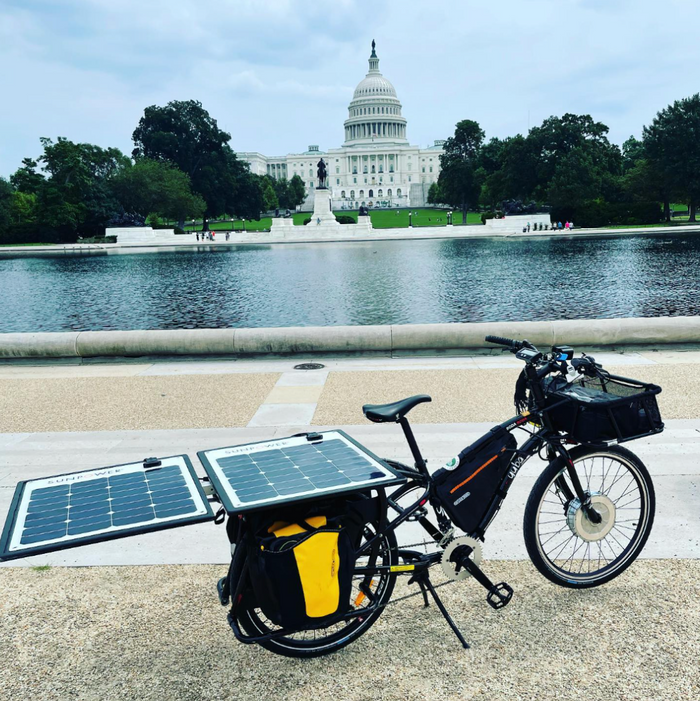
Could you list some of the essential items you take during your rides/travel and why?
We travelled very lightly since the journey was completely self-supported. We stayed indoors in motels/hotels overnight so we did not carry any tent equipment. Some essentials were:
- Working phone with network coverage.
- The Quad Lock Mount was one of the best accessories we used throughout the journey to mount our phones and follow Google Maps bike route
- Different layers of clothing for all-weather riding conditions
- Ortlieb waterproof panniers to carry our stuff
- Portable bike repair toolkit and spares including puncture patches. We had a lot of punctures during this journey and the bike repair toolkit helped a lot to fix on-the-go.
Can you describe some of the challenges you've faced during your journey?
The weather was a challenge. We faced torrential rains, got stuck twice due to a hurricane, rode in snow once, faced extreme heat in the desert and experienced crazy headwinds at times. But, we planned each day as per the forecast and had good clothing and supplies to get through these bad riding days.
Sharing the road with cars in some places was a bit tense while riding. The bike infrastructure is not fully developed in the US yet, hence, there were times when we had to share the road with vehicles which did not feel very safe. But, we kept a safe distance and followed the rules. Overall, we were impressed by the bike infrastructure, especially within cities and some intercity trails in the USA.
How do you hope your ride will and has impacted the perception and adoption of solar energy and electric mobility?
During the journey, Luis and I met with students in various universities to have these conversations about sustainability while sharing more about the technology of solar energy and e-mobility. We showcased the solar e-bike to our hosts during the journey and visited active mobility advocacy organisations like Adventure Cycling Association, Rails-to-trails Conservancy and BikeTexas.org to share our experiences. We interacted with the media in various cities and also spread the word via a few corporate organisations who were the sponsors of the journey as well. The idea was to start a conversation among people via the medium of the solar e-bike as a means of awareness of solar energy and e-mobility adoption.
Some pictures from our public interactions are as follows:
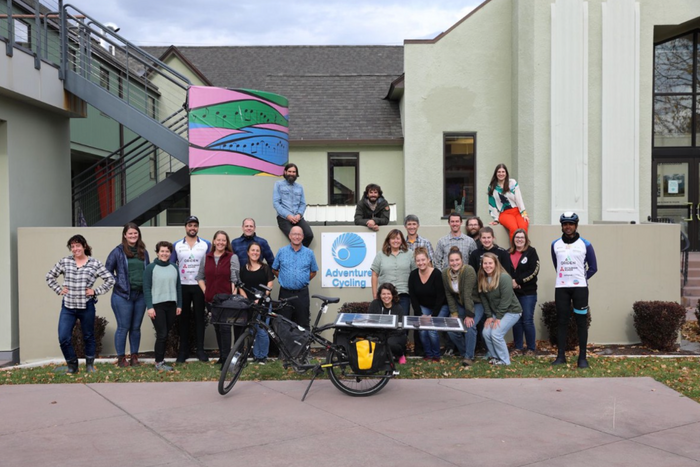
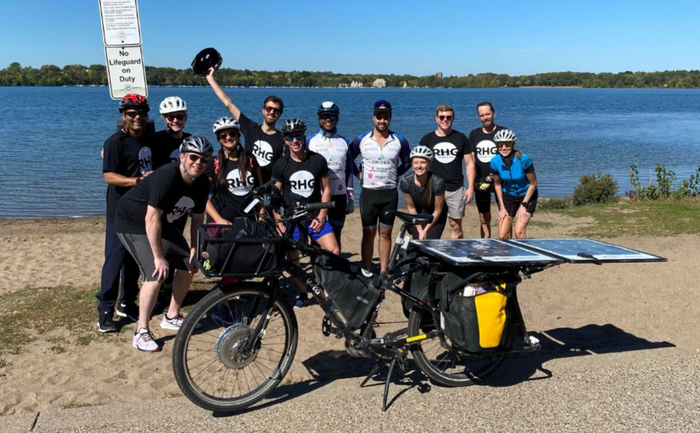
Can you share any memorable moments or encounters you've had during your journey that have reinforced the importance of your cause?
In Houston, Texas, Luis and I met with the Commissioner, Rodney Ellis, of Harris County Precinct One. We also did a group ride with the Commissioner in Houston. It was quite a memorable interaction with the Commissioner who was pro-biking and shared the plans to expand active mobility initiatives in the city. It was good to see the police patrol officers using electric bikes in the County too!
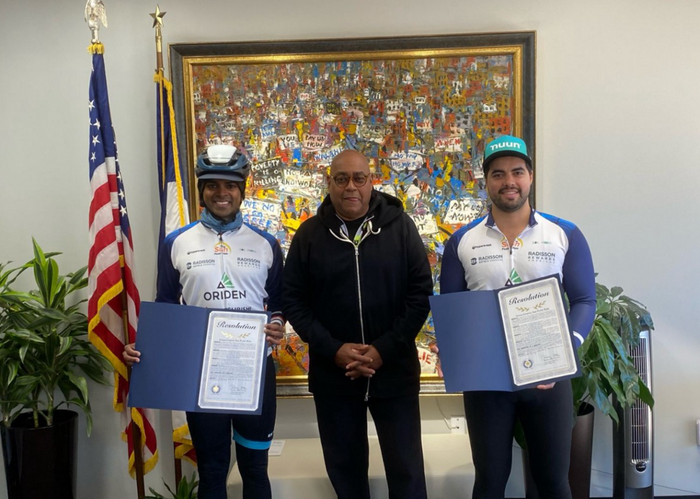
At Bismarck State College in North Dakota, we met a group of students at the National Energy Centre of Excellence to share our experiences on e-bikes and solar energy. There was a healthy Q&A by students as well. This was another memorable experience from the impact and outreach of the message point of view.
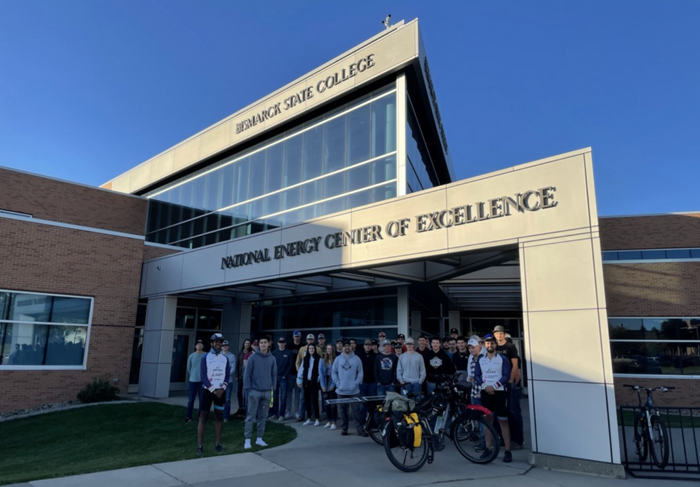
What advice would you give individuals or communities interested in transitioning to solar energy or adopting electric bikes as a means of transportation?
Solar energy technology is a decentralized form of energy that helps to decarbonise the energy sector. It is a good solution to reduce dependence on fossil fuels. Solar energy technology today is also financially viable as a long-term investment. Solar Panels come with a 25-year warranty with a payback period of less than 10 years in the worst-case scenario - which means around 15 years of free electricity if the solar panels are maintained well. I would advise people to consider using solar energy technology which is not only good for the environment but also light on the pocket in the long term.
Electric bikes open the realm of cycling to all kinds of people. Even if you are not an athlete, you can enjoy the outdoors and cover a certain distance without breaking a sweat on the e-bike. The amount of physical effort is reduced as compared to a normal bike due to the assistance from the motor. Hence, it opens up cycling for older people, people with disabilities etc. and makes it an inclusive form of transportation. E-bikes can replace gas-guzzling cars for short commutes within city limits, which makes it an option to decarbonise the mobility sector as well. We are seeing an uptake of e-bikes in the B2B logistics and food delivery business sectors too. The running cost per kilometre of e-bikes as compared to conventional delivery vehicles makes them a better use case financially. Moreover, e-bikes can use the existing bike infrastructure in the cities and the intercity trails for longer commutes.
What’s next for you in 2023-2024?
The SunPedal Ride initiative will continue with different zero-tailpipe emission vehicle journeys in the near future for awareness of sustainability. Thank you for the support and hoping for a continued association in the future!
